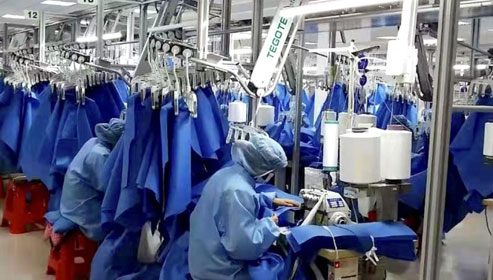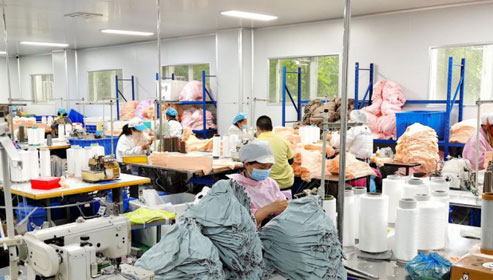With sustainability becoming an increasingly important consideration in various industries, the healthcare sector is also embracing eco-friendly practices. One area where sustainable options are emerging is in the design and production of surgeon gowns. In this blog, we will explore the significance of sustainability in the healthcare industry and delve into the various eco-friendly alternatives available in surgeon gowns.
The healthcare industry, including surgical practices, generates a significant amount of waste. Disposable surgeon gowns, traditionally used in operating rooms, contribute to this waste. However, realizing the importance of sustainable practices, healthcare providers are actively seeking eco-friendly alternatives for surgeon gowns.
Organic Cotton: Organic cotton is an excellent eco-friendly option for surgeon gowns. Grown without the use of harmful pesticides and chemicals, organic cotton minimizes the environmental impact during cultivation. Surgeon gowns made from organic cotton are biodegradable and do not release toxins when decomposing.
Bamboo Fiber: Bamboo is a highly sustainable material due to its rapid growth and minimal need for water and pesticides. Bamboo fiber surgeon gowns are soft, hypoallergenic, and have excellent moisture-wicking properties. Moreover, bamboo fiber is biodegradable, making it an ideal choice for environmentally conscious healthcare facilities.
Recycled Materials: Using recycled materials to produce surgeon gowns helps to reduce the strain on natural resources. Fabrics made from recycled plastic bottles or other post-consumer waste provide a sustainable option that doesn't compromise on performance or safety.
Minimal Packaging: Surgeon gown manufacturers can reduce waste by adopting minimal packaging techniques. Using recyclable or biodegradable materials for packaging and minimizing the amount of packaging material not only reduces environmental impact but also lowers production costs.
Responsible Manufacturing Processes: Surgeon gown manufacturers should prioritize working with suppliers who adhere to sustainable practices. This includes reducing water and energy usage during production and minimizing the release of harmful chemicals. Implementing responsible manufacturing processes ensures that the entire life cycle of surgeon gowns aligns with eco-friendly principles.
Efficient Production Techniques: Employing energy-efficient equipment and optimizing production processes can significantly lower the carbon footprint of surgeon gown manufacturing. Incorporating lean manufacturing principles aims to minimize waste and increase overall efficiency, thus enhancing the sustainability of the surgical gown industry.
Reusable Options: Emphasizing the use of reusable surgeon gowns is another vital step towards sustainability. By investing in high-quality, durable fabrics, healthcare facilities can significantly reduce their waste generation while maintaining optimal safety standards. Implementing proper care and sterilization protocols ensures that reusable surgeon gowns maintain their integrity for an extended period.
End-of-Life Solutions: Developing end-of-life solutions for surgeon gowns is integral to achieving sustainability goals. Options such as recycling or repurposing the material can help reduce waste further. Collaborating with recycling facilities or exploring innovative ways to reuse surgeon gowns ensures that they do not end up in landfills.
As the healthcare industry recognizes the need for sustainable and eco-friendly practices, the adoption of sustainable surgeon gowns is gaining momentum. By leveraging organic cotton, bamboo fiber, and recycled materials, manufacturers can offer environmentally friendly alternatives. Incorporating responsible manufacturing processes and promoting reusable options contributes to the reduction of waste in operating rooms. By making conscious choices and embracing innovative solutions, healthcare facilities can play a crucial role in promoting a more sustainable future while maintaining utmost safety in the operating room.


